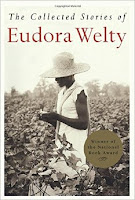I haven't done a regular book review in some time here. Some weeks, it's all I can do to post a Deal Me In short story review. (And recent history asserts that even THAT was too much for several weeks in a row.) Recently I've been posting short reviews of books I've read on Goodreads, and that was OK for a while. But now I feel the need to write something longer on books.
It's unfortunate, however, that the book I choose to resurrect regular book reviews with is this one, mainly because it's a very hard book to describe to someone else. It's no understatement to say that
John Dies at the End is one of the most unusual books I've read in a very long time. Evidently it has quite a cult following, and a movie has been made from the book. (It's on my Netflix queue, so I'm eager to see if it makes a little more sense than the book.) But I have to admit that it seemed a little uneven to me, and it would probably benefit from a rereading, if I had that kind of time (which I don't).
So how to summarize this book? Well, for starters, David Wong is the pseudonym of Jason Pargin, who is the executive editor at
Cracked.com, which is your first clue about what kind of book this might be. Read his
Wikipedia page for the interesting back story of how all this came to be.
The action of the story takes place in [Undisclosed]. (This is what it's called throughout the book.) There's a pair of protagonists, John and Dave, and they have some special powers that allow them to do all kinds of things, not the least of which is to see and interact with creatures and other entities from other dimensions -- what we might otherwise call monsters, although as the events of the book play out, that word is way too simplistic for these things. John and Dave have these powers due to a drug-like substance called "soy sauce." It appears out of nowhere in small metal canisters that are cold to the touch even in the middle of summer, and when you take it, it changes you in all kinds of strange ways.
"Soy sauce," NOT "soy sauce."
Oh, and there's also a dog, Molly, that figures prominently in the plot, but she has an annoying habit of exploding, among other things. In fact, many of the characters in this story keep dying in odd and interesting ways, but they keep coming back. There's also issues with time and the order of events in this story, which doesn't surprise the reader once it's made clear that more that one dimension is involved. But I have to say that it can be very confusing at times.
Molly can even drive.
The upshot of the plot, without giving too much away, is that there is a being from another dimension who goes by the name of Korrok, and who is very interested in taking over the beings and worlds in this dimension. To do this, he sends all kinds of monsters to achieve this purpose, as well as taking control over ordinary people, turning them into various monsters.
Even though my brief synopsis sounds truly like the hottest of hot messes, this is a pretty funny book, even if the humor is often black humor. And it's definitely not like anything else I've ever read. I have to admit that the author was very inventive with what could have otherwise been an ordinary story. And along the way, he manages to work in some pretty interesting philosophical questions that arise from the events of the story.
My major problem with the book is that I feel like it began well -- funny and weird and intriguing -- and ended pretty well (with some major revelations that I simply didn't see coming) -- but the middle part of the book seemed disjointed, or even sort of like filler. This is why I think I might like to read the book again, to see if I just missed something in the middle that would make more sense now that I know the basic arc of the story.
Rating: 4 stars; I'm glad I read this unique book, even though (spoiler) John does NOT die at the end.



















































